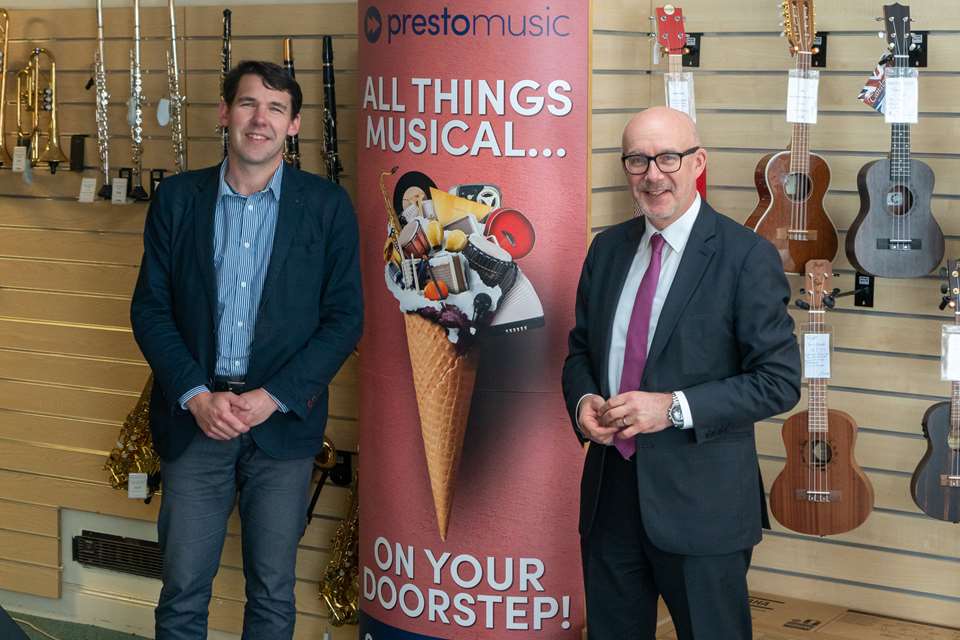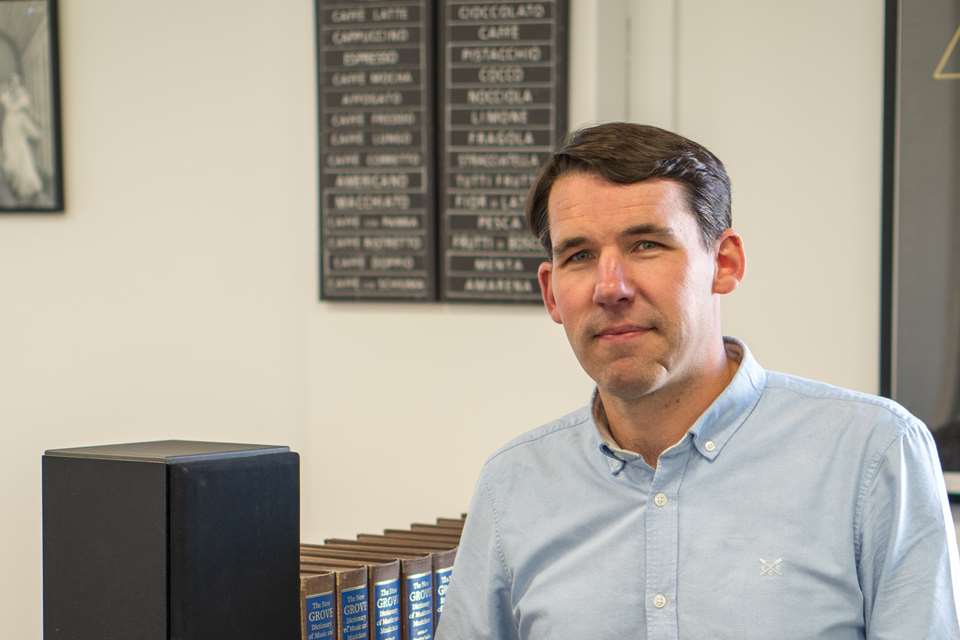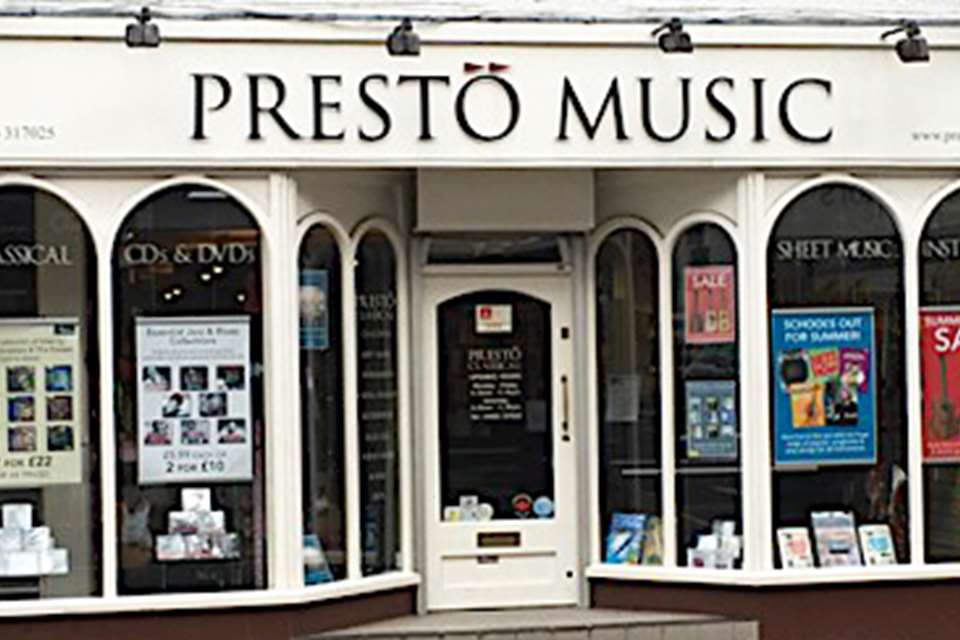Presto Music's 35-year rise to global success
Phil Sommerich
Monday, October 11, 2021
Presto Music was one of the few success stories of the pandemic, with the company announcing its strongest financial growth of all time over the last year. But how have its owners built it up over the last 35 years? Phil Sommerich reports

How do you build a global classical music retailing empire in 20 years? For Chris O’Reilly, chief executive officer of Presto Music, it has been a combination of cutting-edge digital innovation and going back to his youth, when collectors visited record shops to browse review, chat to knowledgeable staff, listen to samples and then browse the racks to make their selection.
It has certainly worked for Presto, which is celebrating its 35th anniversary and its 20th under current ownership. During that time it has gone from a shop in a back street of Leamington Spa selling sheet music and instruments to locals to an online and physical presence which O’Reilly says accounts for one in 40 classical CD sales worldwide.
That Presto progress began in 1986 when a couple of music enthusiasts, Ken and Diana Ross, decided to set up a sheet music and instrument shop in the Warwickshire town. The business gradually expanded into the then new CD recordings. Fifteen years on, the couple decided to retire and one of their regular customers, Maurice Millward, who had also retired after selling his market research company, Millward Brown, decided to take it on.
‘He bought it because he thought it would be a good thing for the town to have a classical music shop,’ O’Reilly recalls. ‘But then the manager left, so he advertised in the Guardian.’
O’Reilly had just married and was moving from London to near Leamington because his violinist wife had regular work with the City of Birmingham Symphony Orchestra. ‘I saw the advert and I had worked in a music shops in London and knew how retail works, so I joined in September 2001.’
O’Reilly inherited a staff of two part-timers and the shop which, like most in the area, closed on Thursday afternoons. The new manager decided to try the unheard-of practice of price cutting: a two-CD opera set for £20 instead of £30, three discs down from £45 to £30. ‘People couldn’t get enough of it, this idea of a discounted price.’
He and his boss also turned to online selling, even though classical fans had been resistant to the dotcom boom. ‘Maurice thought this was the way the world was going, so we launched the website, adding 500 Penguin rosette winners. It was a pretty basic website with the name of the work, artist and price, and you clicked on a button to buy it. There wasn’t even a cover image of the product.
‘We got an email to say someone had ordered something, we printed out the order, put the product in an envelope, went down to the post office and bought some stamps and posted it. It was pretty slow to get going – I think there were three orders between August and the end of the year, but we added more recordings and we thought let’s put images next to them all and we then added a review, making it better bit by bit.’
Even so, until the end of the decade phone orders outstripped online sales. In-person custom was – and still is – valued. One collector was a fan of Swedish romantic music recorded by the Sterling label, so Presto would order one of each release for him.
Today Presto has a warehouse as well as its store, and 47 staff despatch recordings to an average 30 countries each day and to well over 100 in total.
In 2002, O’Reilly took advantage of a move to larger premises in the main town to move Presto back into instruments and sheet music. ‘There had always been a music shop in Leamington selling sheet music and instruments, but it had closed. It was an area I had worked in and knew.’
The contact with customers that O’Reilly experienced in London and in the early Presto days of has become a continuing tradition. ‘We haven’t yet replicated that online, but if you get that right and give people proper recommendations that is quite powerful.’
All of Presto’s staff are musicians (O’Reilly is an amateur cellist and conductor) and they give regular ‘rush-hour recitals’ in the shop – suspended during the Covid pandemic.
Katherine Cooper has brought that personal touch online with an ever-expanding stream of news items and interviews with musicians, alongside a round-up of reviews.
Accuracy of product listing is also valued. At first, one employee would take home a bundle of new releases and type their details on to the website, then return the discs to the shop so they could be sold. Today that is done digitally, but one Presto staffer still checks that every detail of a release, such as spelling of a composer’s name, images and opus numbers, is correct.
Until 2003, all sales were UK-only. Then an order came in from Dublin, which Presto duly fulfilled. ‘We probably lost money on it because of the postage, but we thought suddenly there’s no reason why we can’t sell internationally and add postage on to the price. That really grew the website business.’
Presto also dived into downloads in 2015 and, although it is still only about a third of recording sales, Mr O’Reilly believes it will continue to grow. CD sales rose last year, possibly boosted by purchases from concert-deprived music lovers. Sheet music sales, sank, however, particularly thanks to the demise of choral concerts.
Presto continues to work on a streaming service. At present, the My Library app allows customers to stream any recording they have bought from Presto. ‘We are getting about 1,500 people a month using that either through the website or the mobile app.’
The hope is to expand that into a subscription-based service next year. O’Reilly is not worried about the impact on CD and download sales. ‘We have always taken a fairly neutral view as to format. We have always said this is a great recording and we don’t mind if you buy it on CD or download. I don’t think people will be confined to one format. I can see people subscribing and still buying a recording.’
We have always taken a fairly neutral view as to format. We have always said this is a great recording and we don’t mind if you buy it on CD or download
But Presto is working on a radical change in the way classical fans listen to streams. ‘One of the reasons people are reluctant to stream is because they have their CD player and amplifier at home and that is easy for them – put a disc in the player and you get a nice sound. How to stream something is not that easy. You can buy a streamer for £500 and up, and you can use your phone to control it, but it’s not easy. Prest. We are developing a hardware device you can plug into the back of your amplifier and use our controls. We feel it is necessary to make that journey.’
Also in the works is putting instrument and accessory sales online, along with lots of advice. ’I am sure we can offer advice such as what violin strings to buy, the same service as we provide with CD sales all over the world.’
The move into sales of jazz recordings is also growing fast under the supervision of Matt Groom.
This year also marks Mr Millward’s 90th birthday and, while he has taken a back seat at Presto he is still a regular concert-goer.
O’Reilly admits that in his executive role he sometimes worries when Presto shuns a mass-selling release from a major label in favour of enthusiastic advocacy of specialist repertoire from an indie. ‘But people trust that and it is our staff’s enthusiasm that is key to our success.’



